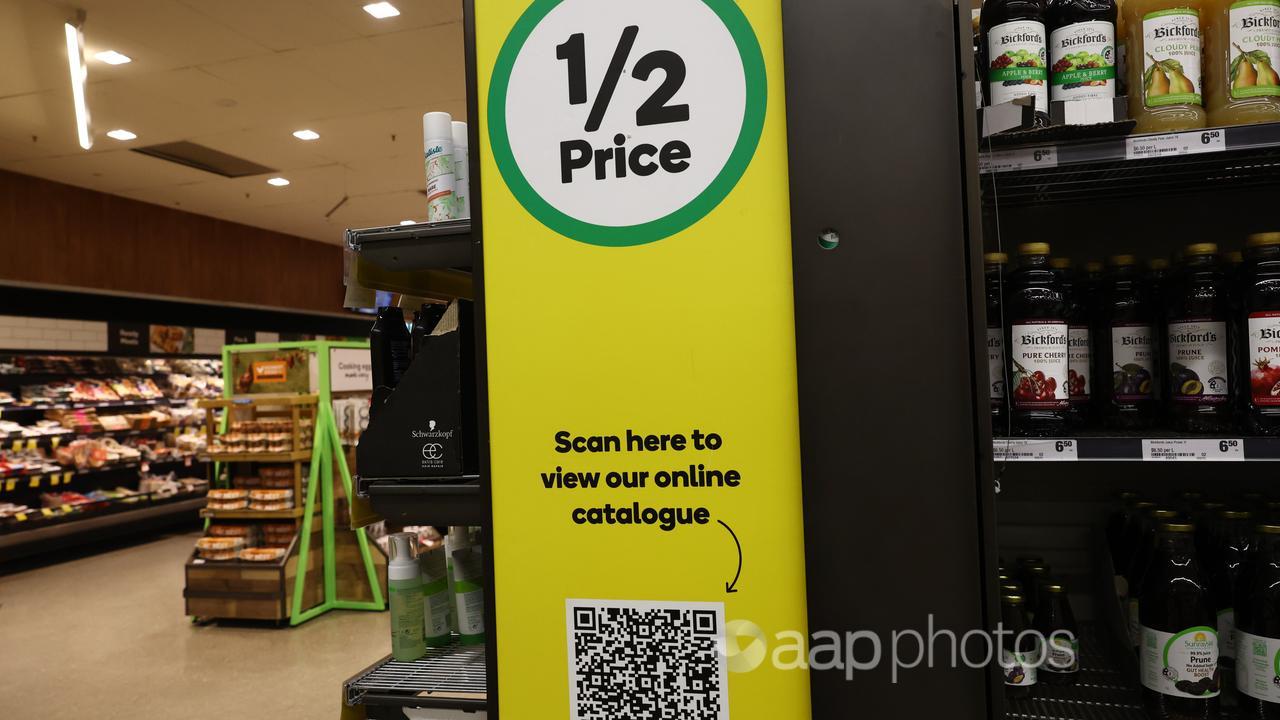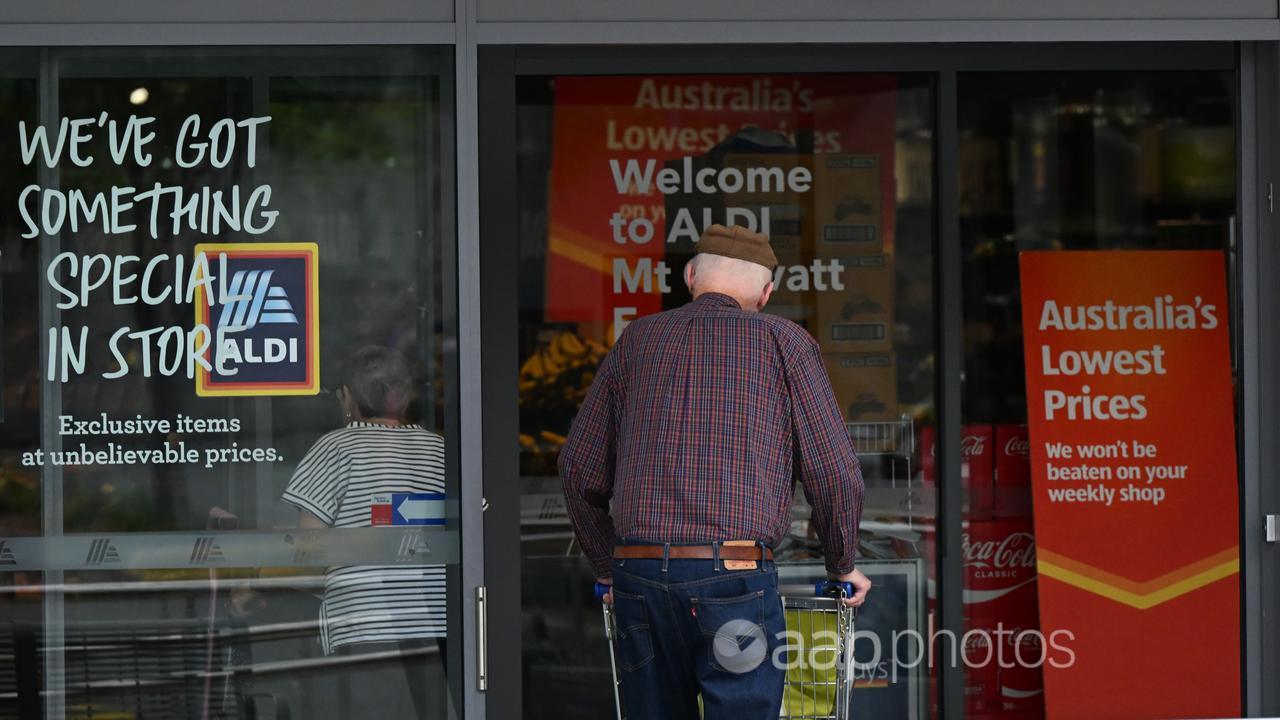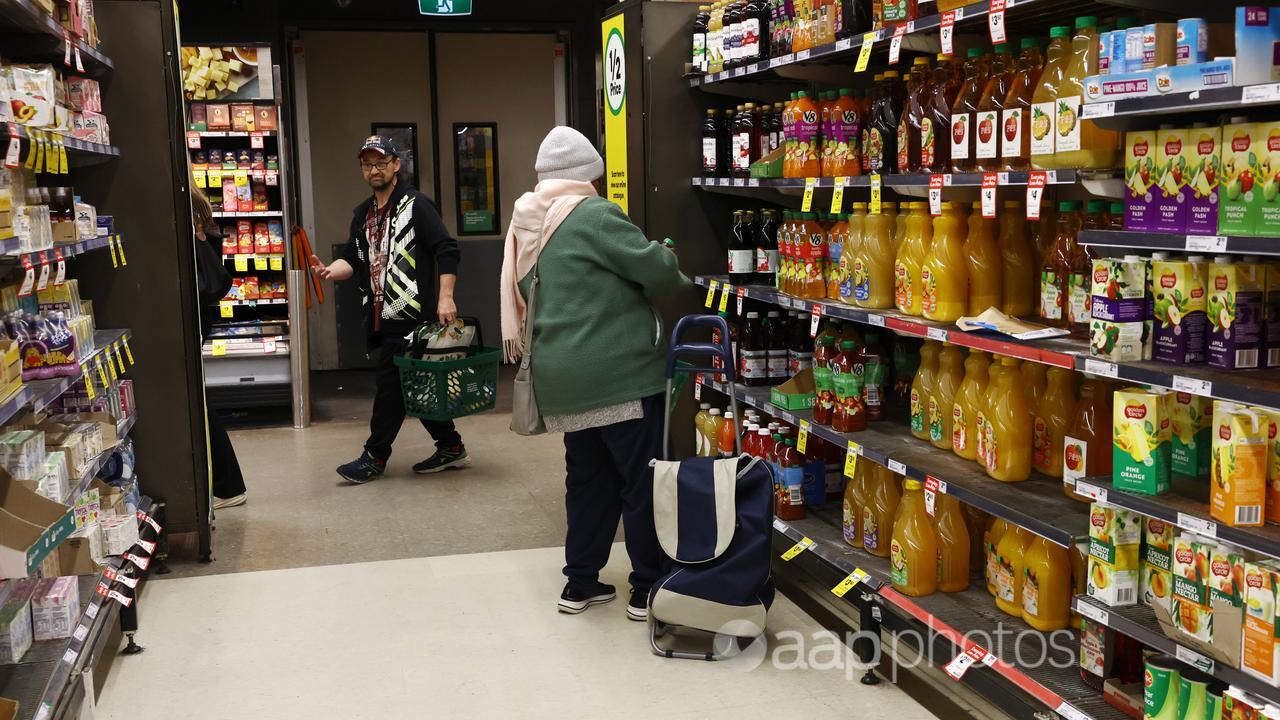Australia’s major supermarkets have breached trust and must do better for consumers, Anthony Albanese has warned.
A competition watchdog probe has found the two biggest retailers act as an “oligopoly” with limited incentive to compete on price.
The cost of a typical basket of goods increased by 20 per cent in the past five years and the majority of low-income households have to spend 20 per cent of their pay on groceries.
The Australian Competition and Consumer Commission interim report highlighted customer concerns on soaring prices at the checkout, a lack of competition and a loss of trust about specials or discount schemes.
It was “a breach of trust” for supermarkets to behave like that, the prime minister told reporters in Melbourne on Friday.
He said the findings released so far indicated supermarkets “need to do better”.
“When it comes to supermarkets, we want to make sure that supermarkets deliver value and that consumers are looked after,” he said.

A record 21,000 customers contributed to the supermarket inquiry.
ACCC deputy chair Mick Keogh said customers face difficulties trying to compare prices and some feel forced to take part in loyalty programs, which means they must hand over personal information to access cheaper goods.
While the report did not detail recommendations, Mr Keogh said there was concern about how major supermarkets were abusing their powers.
“Oligopolistic market structures can limit incentives to compete vigorously on price,” he said.
“We see Woolworths and Coles providing a broadly similar experience to customers through largely undifferentiated product ranges, pricing at similar levels and similar non-price offerings including loyalty programs.
“These difficulties reportedly arise from some of the pricing practices of some supermarkets, such as frequent specials, short-term lowered prices, bulk-buy promotions, member-only prices and bundled prices.”

Nationals leader David Littleproud claimed the government had dragged its heels over the report, which he said showed major supermarkets had been allowed to “run riot”.
“There are families that won’t have dinner tonight, yet the Albanese government is so out of touch, they’ve failed to realise the urgency of addressing competition in the supermarket sector,” he said.
Coles and Woolworths make up 67 per cent of the supermarket sector, with the report noting the considerable time it took the next largest chain, Aldi, to increase its market share – 20 years to get to nine per cent.
The findings came as no surprise to NSW Farmers Principal Economist Samuel Miller, who said “supermarket superpowers” had pushed up profits without facing penalties.
“Farmers have been unable to speak out for fear of retribution, and families have been left with no choice but to hand over their hard-earned money,” he said.

Business Council of Co-operatives and Mutuals chief executive Melina Morrison said Australians should be “alarmed” just two companies hold more than two-thirds of supermarkets.
She attributed this to a lack of policies to support other structures, like co-ops and mutuals.
The report comes days after the commission said it would take Coles and Woolworths to court over claims of misleading specials, alleging the chains increased prices only to place them in a promotion at a reduced price that was still higher than the original cost.
In an ASX announcement, Woolworths Group chief executive Amanda Bardwell said the company believes the grocery sector is competitive and customers have more choice than ever.
A Coles spokesperson said the company will examine the report and it supports a diverse supermarket industry that offers choice and competitive prices.
Greens Senator Nick McKim called on the government to “break up the duopoly” to encourage competition, but Assistant Minster for Competition Andrew Leigh said the government was not seeking to do that.




















